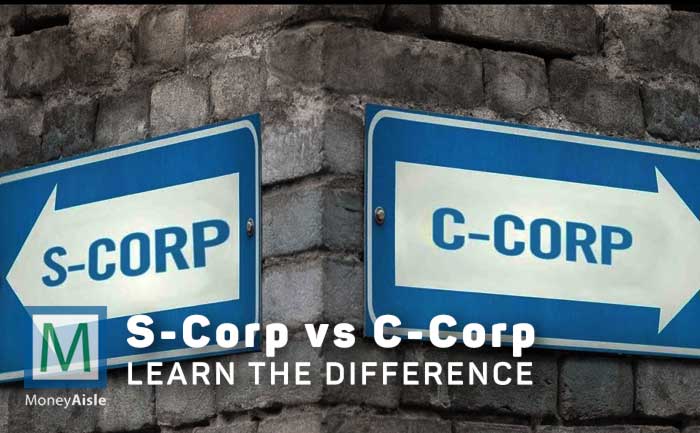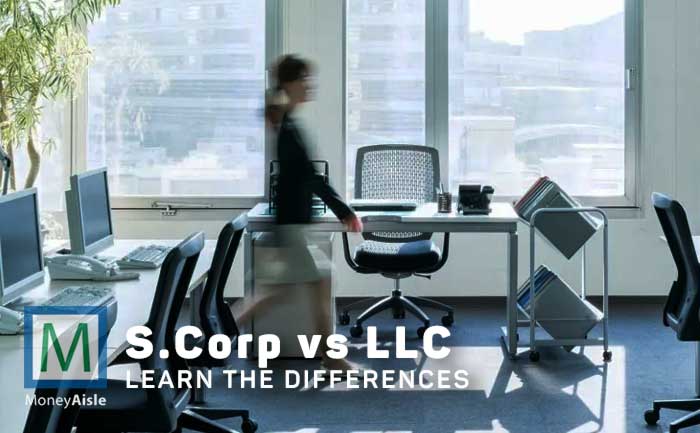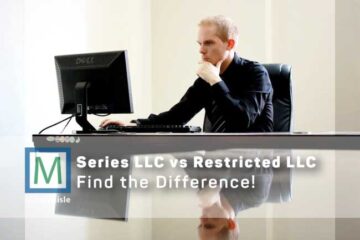There are many features and Characteristics of Limited Liability Company that make LLCs the most popular choice among most business owners. Here, find all you need to know about LLC features and characteristics.
An LLC provides the flexibility of a sole proprietorship and liability protection like a corporation. Unlike other business structures, LLCs have numerous tax options, easy funding availability, and fewer formalities. These are a few of the main features of a Limited Liability Company.
These Characteristics of a Limited Liability Company make LLCs the most popular choice among business owners. So, here we’re going to discuss 5 key characteristics of Limited Liability Companies (LLCs):
- Separate Entity
- Limited Liability
- Flexible Management
- Numerous Tax Options
- Easy to Set Up and Maintain
Are You Considering to Start An LLC?
If you’re considering starting a business, an LLC is a good option. Starting an LLC is easy and less laborious to maintain. It offers personal liability protection and taxation flexibility while having few state compliance requirements.
There are two options to start an LLC in any state: Through LLC services or by following our DIY guide. Simply select the State from below to learn how to start an LLC in your area.
Have you ever wondered what makes a limited liability company (LLC) so different from other types of businesses? From flexible management structures to favorable tax treatment, several characteristics make LLCs an attractive option.
In this blog post, we’ll take a closer look at some of the key Characteristics of a limited liability company. Hopefully, by the end, you’ll better understand what an LLC is and whether it’s the right business structure for you. So, let’s dig in.
What is an LLC?
A limited liability company, or LLC, is a hybrid business entity combining elements of a corporation and a sole proprietorship/ partnership.
Like a corporation, an LLC provides its owners with limited liability protection. This means that if the LLC is sued, the owners will not be held personally liable for any debts or damages incurred by the company. The LLC will shield the owner’s personal assets from being held liable.
However, like a sole proprietorship or general partnership, an LLC allows its owners with flexibility in management, taxes, and formalities. These Characteristics make LLCs an attractive option for small businesses and startups.
5 Key Characteristics of Limited Liability Company
An LLC is the most popular business structure in the U.S. these days. An LLC is formed and operated under state law by filing the LLC articles of organization with the state authorities.
While opting for a business structure, business owners look for characteristics that offer them maximum benefits with minimum formalities and compliance requirements.
An LLC has several exciting features & characteristics that set it apart from other business structures and make it the most popular pick among entrepreneurs. These features or characteristics may include:
- Separate Entity
- Limited Liability
- Flexible Management
- Numerous Tax Options
- Easy to Set Up and Maintain
Let’s discuss the characteristics of a Limited Liability Company one by one in detail.
#1: Separate Entity
An LLC has a separate legal existence distinct from its members. It means that an LLC can own property, sell or buy a property, retain attorneys, etc., on its own.
The LLC can sue and be sued in its own name. The LLC’s assets and debts remain separate from the owner’s personal assets and debts. Therefore, an LLC is a great way to start your own business with minimal risk.
#2: Limited Liability
The limited liability feature of an LLC is similar to that of a corporation and is considered the most essential feature of an LLC. Having limited liability protection;
- Members of an LLC are not personally liable for the debts and obligations of the company. It means that the LLC members will not be held responsible for paying back creditors if the LLC goes bankrupt.
- If LLC is sued or faces a lawsuit, the personal assets such as a car, home, and personal bank accounts will remain shielded.
- In multi-member LLCs, an LLC member cannot be held responsible for torts or civil wrongs committed by the other members of the LLC.
Important
This protection is not absolute. LLC members can still be held liable if they personally guarantee debt or engage in fraudulent activities.
Due to this limited liability feature of LLC, it becomes easier for business owners to scale up the business without risking their personal assets.
#3: Flexible Management
Unlike S or C corporations, LLCs do not need to have a complicated management structure, including a board of directors and management team. LLCs can be managed by one or more members, or they can appoint a manager to handle day-to-day operations.
Read more about the LLC management structure here.
This flexibility makes LLCs a good choice for businesses with multiple owners who want to be involved in management but don’t want the hassle of dealing with a formal business structure.
#4: Numerous Tax Options
The tax implications of a particular business structure are an essential consideration when choosing one. LLC offers the most flexibility regarding taxation compared to other formal or informal business structures.
Important
Mostly, LLCs do not pay taxes on their profits directly. Hence, entrepreneurs prefer LLCs to reduce taxes. Moreover, LLCs can write off taxes in numerous ways further reducing tax bills.
When it comes to paying taxes, LLCs can elect to be taxed either;
- As a pass-through or flow-through tax entity or
- As a corporation (pay tax at the corporate rate).
If LLC chooses to be taxed as a pass-through entity, it will be taxed as either a sole proprietorship or a general partnership, depending on the number of LLC members.
Pass-through tax means the company’s profits and losses are “passed through” to the owners and reported on their personal tax returns.
On the other hand, if LLC elects to be taxed as a C corp, it will be subjected to double taxation. Here, you can read “How LLCs are texed” in detail.
You can pick whichever tax structure is suitable for you. But you need to mention this on your LLC bylaws or operating agreement.
#5: Easy to Set Up and Maintain
LLCs are relatively easy to set up and maintain. In most states, all you need to do is;
- File certificates of formation with the secretary of state and
- Pay an LLC filing fee.
Important
You also have to fulfill newspaper publication requirements in New York, Arizona, and Nebraska to start an LLC. It means you have to notify the public that a new business entity has been formed by publishing a notice in a reputable newspaper.
There are no annual shareholder meetings, and minutes are required, as there are with corporations.
LCs also have fewer compliance requirements than corporations. In some states, LLCs submit an annual or biennial report with a fee, while other states don’t require one.
It means that LLCs can save time and money on paperwork and compliance costs.
This characteristic of a Limited Liability Company attracts business owners who want to avoid laborious paperwork and compliance-related headaches.
Advantages and Disadvantages of a Limited Liability Company
Like every business structure, Limited Liability Companies also have some advantages and disadvantages. Ultimately, in specific circumstances, a business owner picks a business entity that offers maximum advantages and has minimum downsides.
Below we have listed the disadvantages and advantages of a limited liability company so that you can decide whether you should start an LLC or look for another business structure.
FAQs on Features of Limited Liability Company
What characteristics do corporations and LLCs have in common?
The following characteristics of a limited liability company and corporation are common:
- Both are formal business structures (formed through state filings)
- Both are separate legal entities from their owners
- Both provide limited Liability Protection
- Both corporation (s corporation) and LLC can choose to be taxed as pass-through entities or as a c corporation
What are the functions of a limited liability company?
The entrepreneurs choose LLC for three main reasons:
- It protects its owners from being held personally responsible for the lawsuits and debts of the company. In other words, if the LLC is sued or goes bankrupt, the personal assets (home, car, personal bank accounts) of its owner-investors cannot be pursued.
- LLC profits are passed directly through owners’ personal income for tax purposes. Though LLC can also choose to be taxed as a corporation.
- There is no ownership restriction as seen in corporations. The number of owners can be 1 or as many as LLC wants. Moreover, the LLC owners can be nonresidents and non-citizens of the USA as well.
Reference:
- https://www.irs.gov/businesses/small-businesses-self-employed/limited-liability-company-llc
- https://www.law.cornell.edu/wex/pass-through_taxation#:~:text=Pass%2Dthrough%20taxation%20refers%20to,their%20share%20of%20the%20business.
- https://www.law.cornell.edu/wex/limited_liability

Aisha Noreen is an owner of a small business with more than 9 years of experience in the marketing industry. With the wisdom of an old soul, she always seeks innovation and mind-blowing ROI techniques. Her unique approach helped many small businesses thrive and she can surprise you in many ways as well. Believe it or not, her energy, passion, and creativity are contagious enough to transform your business and take it to another level.









